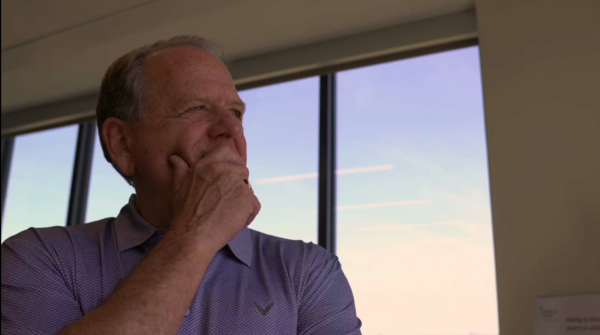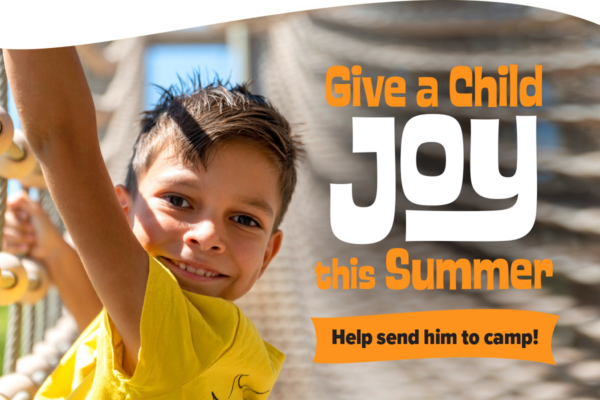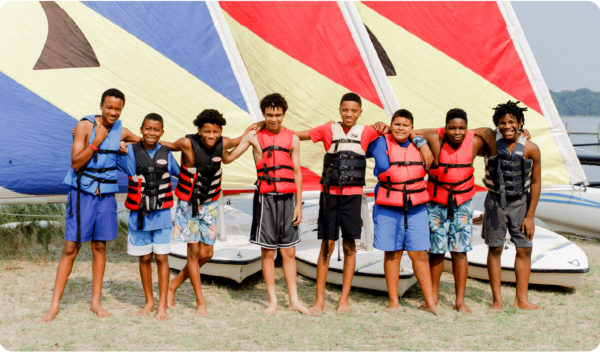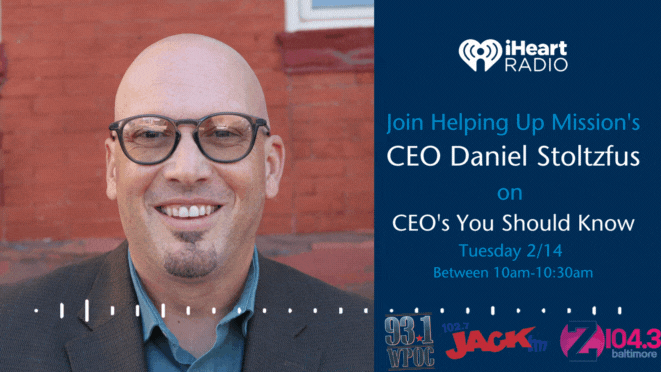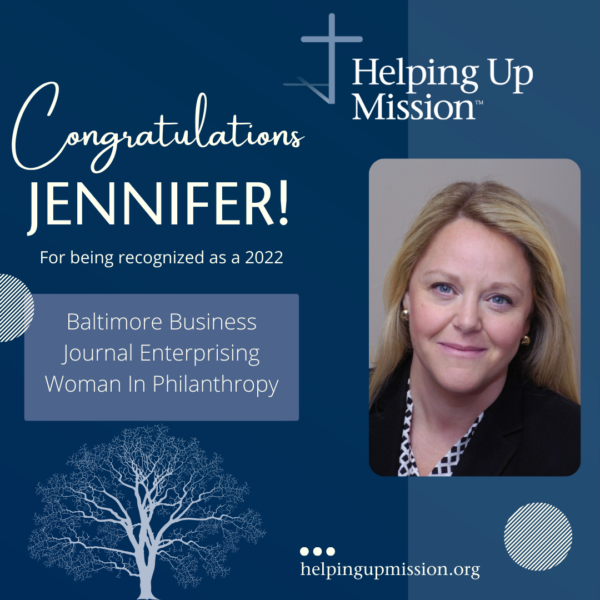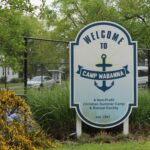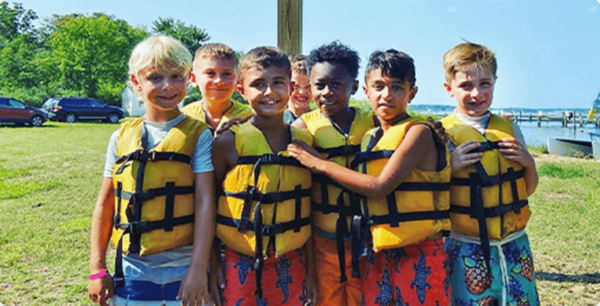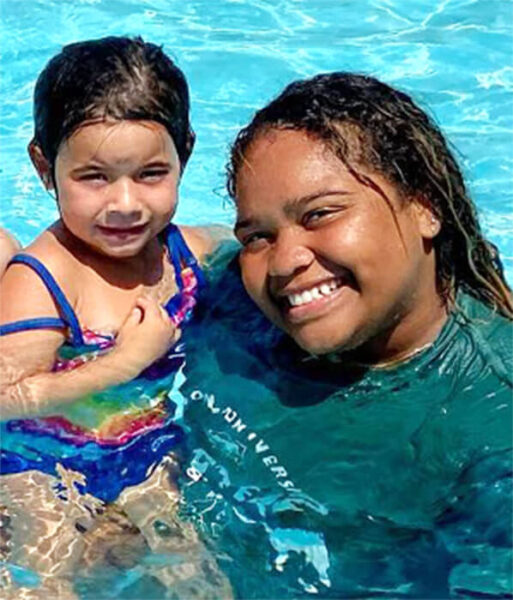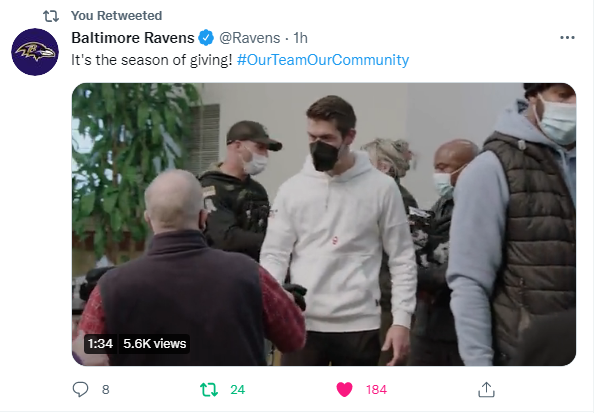Alison is the mother of Adam Fishman, who graduated from Helping Up Mission years ago and passed away more recently. Jake is Adam’s brother. They share Adam’s story, but also the story of their grief journeys, how Allison’s grief led her into writing poetry – you hear one of those poems at the very end of this episode – and also led her to a joint presentation with one of Adam’s doctors at medical humanities conferences.
You’ll hear how Jake’s journey of grief led him to ultra long distance running in his brother’s honor, which is something he’s done for the past three years and raised tens of thousands of dollars for Helping Up Mission.
Mother’s Day, like any holiday, is joyous for some and bitter or bittersweet for others. This episode goes out to all the mothers and all the family members who don’t know where their loved one is today, or who’ve lost their loved one to addiction. We hope Allison’s and Jake’s stories and experiences bring you some measure of hope and encouragement in your grief.
Please help us make a better podcast by taking our listener survey
Produced by Vic King. Music by Blue Dot Sessions.
Transcript
(This transcript is auto-generated and may contain errors.)
Vic: This is a shot of hope. I’m Vic King, chaplain at helping up mission, and this episode is different. Normally we’re hearing from a graduate of helping up mission about their story of recovery and redemption, but as anyone who’s familiar with the world of addiction and recovery knows, that is not how every story ends. On my wall in my office, I’ve got photos after photos after photos of our graduates. But I’ve also got a smaller section of photos of men I’ve had the privilege of walking alongside, who have passed away, some from overdose, some of other causes. Today I’m bringing you a conversation that I had with Alison Hartman and Jake Fishman. Alison is the mother of Adam Fishman who graduated from helping up years ago and passed away more recently. Jake is Adam’s brother. They share Adam’s story, but also the story of their grief journeys, how Allison’s grief led her into writing poetry. You hear one of those poems at the very end of this episode. And also led her to a joint presentation with one of Adam’s doctors at medical humanities conferences. You’ll hear how Jake’s journey of grief led him to ultra long distance running in his brother’s honor, which is something he’s done for the past three years and raised tens of thousands of dollars for Helping Up. Mother’s Day, like any holiday, is joyous for some and bitter or bittersweet for others. This episode goes out to all the mothers and all the family members who don’t know where their loved one is today, or who’ve lost their loved one to addiction. We hope Allison’s and Jake’s stories and experiences bring you some measure of hope and encouragement in your grief.
Alison: I’m Alison Hartman And I’m the mother of adam Fishman and Adam was a graduate of helping up mission in 2013 and he died in 2017. And we’re here to tell about Adam’s story and and our story with him.
Jake: As she said I’m Jake Fishman. I’m Adam’s older brother. He was three years, three years younger than me. So I’m here to just relay his story.
Alison: Adam had a relatively normal childhood I’d say up until a certain point. I always say that adam was a challenge from day one. And he was a very willful child, but very strong personality but he was also incredibly lovable and passionate and funny and and pushed the limits. But he had a normal childhood and he liked to do all the things, little boys like to do. He was very loved. And I guess I’d say everything was normal until I. And that’s when his, there was a divorce. His father and I divorced, and that was very traumatic for both boys But I would say specially for adam. He was very sensitive kid, very tender, very vulnerable. And I’d say he always had this feeling that he wasn’t always comfortable in his own skin. Those years after the divorce were hard on him, but like for any kid, it would be hard. I remarried and a few years later and Adam started experimenting with marijuana in eighth grade. And it was a F it, I would say it became a love affair for him. It was getting high was his focus. And we did all the types of interventions that parents do at that age. Some of it was, normal experimentation, but for Adam, I think it was different than that. And it became an obsession. And from marijuana into high school went to hallucinogens. And then, and then an arrest happened, you got arrested age 17 for possession of marijuana.
And at that point, a lot of things were happening in 17. He was he was in a group of kids that were all kind of counter-culture kids and all experimenting with all this music and pod and so forth. But one thing I found right around the time of the arrest was a bottle of oxycontin. And then I knew this, we were in a serious. It was serious. And so as a family we made an intervention and some parents ended up doing. The arrest made no difference to him. It was like almost a badge of honor. And so he ended up we ended up sending him to a wilderness program. And he was away for about eight weeks. And, I’d basically we had a lot of hope at that, point, but from then on it was a spiral downhill. And from oxycontin came heroin And so from age about 18, 19 till his death in 25 he was a heroin addict Many stories are like this, rehab after rehab, intervention after intervention. And that came a point I’d say when I w when Adam was like maybe 19, 20 that, I started attending Nora naan. And I knew that I I needed help in how to handle myself with this what felt like I always use this analogy of a runaway train that when Adam started using drugs I felt like I hopped on this runaway train with him and tried to find the brakes and see what I could do to fix this and this horrible thing.
And then I realized eventually that I had to get off this train. There was no way I could stop. And so I got off the train and but then I kept watching the train go by and that was almost as painful as being on the train. and then I finally realized I had to walk away. And I think and working my own 12 step program helped me be able to walk away, not walk away with get out of my life, but walk away with I love you. And I want you to get well but I can’t participate in this anymore until you’re in recovery. And so Adam had some years between 20 and his death that he was homeless. And, the first, time he was really homeless that’s when he entered the mission. And he did that other rehabs We had to force it but this was his own choice. He entered on his own and we felt that he was really ready. Readiness is a big thing. so we thought maybe he had hit his bottom and he was really ready. Being on the street was no fun. And we weren’t enabling him, the way we had in the past.
And so he entered the mission and he actually said he stayed for a whole year. And to me it was just the biggest sign of hope. And what happened when at graduation they show the picture of the person when they entered the program. And then when they leave. And the transformation was amazing. And I felt like. Adam came home, it was like the Adam, we all knew and loved. And sadly it didn’t stick. And, Adam really when he left the program he really didn’t continue to work on his recovery. And he eventually had a period of doing better but then ended up spiraling really down the last two years of his life. And we made another had to make another separation from him. Of those last cup last year and a half And we’ve just said yeah we can’t I’ll go down with a sinking ship. And we love you we want you to be part of our family but until you’re in active recovery, we can’t be around.
And so he was on the street for awhile and for that year and finally he ended up at university , Maryland in the ER with a drug induced psychosis. And he was put on psych unit and he was there the last two weeks of his life. And, he was taken care of during those two weeks by a very compassionate doctor who facilitated a reconnection with me and Adam, his father and Adam, and jake and Adam. And He was good. They had stabilized him. He had been sober for two weeks and he was like Adam. And my final conversation with him was I didn’t know it was my final conversation, but he is discharged plan from the hospital Was to go back to helping up mission. And he had actually called the mission, arrange the admission and all that. And, he left On a Friday, March 10th. I spoke with him Thursday, March 9th. We had a beautiful conversation on the phone. He said he was ready for recovery. He said he knew he was loved by all of us And he wanting help people. He said, I want to help people like you do mom.
And and so he said, I’ll call you when I’m I get to the mission. And so we waited all Friday, no call Saturday no call. If Saturday afternoon, about four o’clock on March 11th I got a call from the police and they said my son was dead And um, um, It’s a funny thing it’s I wasn’t really surprised because I had prepared myself for this firm for many years, but it was of course a devastating shock I don’t think any parent is ever ready for this And so he never made it to the mission. He, and instead was picked up by his also heroin addicted girlfriend and was went to his drug dealers house And got high and died It was a fentanyl overdose
And what was interesting and very shocking to find out several days after he died, his previous girlfriend, not the current one but the previous girlfriend who was actually, Had a more positive influence not a drug addict on his life told us that he had been I always wondered what had happened to Adam. what how did he become a heroin addict? there is no history of addiction in the family On side of the family, no substance abuse disorders but she revealed that he had been sexually abused When he was like 11 and 12 and so forth And I think that played a big role in his downward spiral And I think it was the missing piece of the puzzle And I found out afterwards that he had. He had started to deal with this in his own counseling And certainly at the mission was traumas discussed and dealt with But I do think this I later my own reading had found out that, That such a percentage of addicts have a history of physical And sexual trauma So
Jake: so my timeline with Adam story is always hard to keep track because there’s Like a ping pong ball. It’s just so many back and forth periods of Drug use sobriety, rehabs homelessness. When I think about my childhood and my relationship to Adam, when I was, when we were younger To be honest, I have very few explicit memories, Explicit memories of it. My, my mom and dad both told me that we were very close growing up. I remember playing with them and I remember being at the beach, like going to the family vacations with him.
I sorta remember when it started. He was 12, 13. I would have been around 17. I remember catching him smoking weed and the basement stairwell outside here with his friends. And I remember actually being at a group of my friend’s house at a friend’s house with some of my friends who, one of them had a younger brother who’s Adam’s age. And Adam is over with his group of friends there. And I remember all my friends smell smoking weed with my brother. And that was my first really those first time I, I saw him using drugs and It progressed from there. I remember when I was in college hearing about him my mom finding the Oxycontin and, It was pretty clear that he was no longer the person that he once was. And he like, I became a, he was no longer my brother, really, at that point, I just didn’t, I didn’t know who he was anymore.
We lost common interests. Our conversation, we had nothing to talk about really anymore there was another impact was just as all it was, he became like All encompassing with my family Like he was all that my mom and dad really could focus on. Myself included to an extent, I think, it’s hard enough being a sibling to a brother or a sibling to an addict, but I think it’s a whole other level being the parent. it didn’t really seem to matter what was going on in my life. Positive or negative there, because understandably so there was a crisis that needed to be dealt with. I was never in crisis. Adam was , his descent took the priority and I can’t really. fault My parents for that. That’s just how, it’s just how it is when you have a kid. I can imagine. He had a lot of, but he had a lot of ups and downs as my mom mentioned. And, during the periods, when he was sober and, especially after he got out of the mission, we really did reconnect. And we’re in touch, fairly regularly. I think we had a really good, I think we had a really good relationship at that point. I saw him when I was in town. we’d have dinners with, the three of us or with my dad. And it was really good. I remember when it started taking a downward spiral was And again my timeline might be off, but sometime around the murder, after the murder of Freddie gray and the unrest in Baltimore and the protests I know, I recall he got beat up or so, he says he got. W I never want to doubt his, his word, but with an attitude, you never know. He says he got beat up and mugged.
And that’s when I remember just things changed. He, became homeless shortly thereafter at one point he attempted suicide and jumped off a building and was in shock trauma after that. That was really hard at that point. When I found out about that I was with my in-laws and my wife for the holidays. That. Obviously dominated that holiday. And, but then, he checked himself into university of Maryland I was in Boston, in, in law school at that point. And. We like, like my mom mentioned, yeah, he had a great doctor, great nurses and staff there in general, but Reconnected my last conversation with him, we talked a couple of times on the phone during the two weeks that he was there. We also actually still have a couple of voicemails saved on my phone.
And during that time the, I think the last time I talked to him was probably Wednesday or Thursday before he died. Just over Facebook messenger. I was on campus and just check in and just, I don’t remember exactly what we talked about. but was very Basic and just checking in. He was looking forward to getting out. He, I knew he was planning on going back to the mission the worst times of your life, you don’t really. realize it’s gonna, it’s going to lead up to that or it’s going to happen until it happens. It was just normal Saturday. And I had just gotten back to my apartment in Boston and got a call from my mom and, Yeah, just find out he, he was dead. And I was of on a plane, like four hours after that back home.
I always describe it as a shock, but not a surprise. I think my mom and and my dad, we were all preparing for his death for probably five plus years before it happened. Like it was not of course not hoping for it, but just knowing that it was very likely to have. And actually, I’d take that back… almost at points. I did hope for it because was so tortured and putting us through so much torture that, I, that sounds cold. And, but it’s just, if he was going to be in such a miserable, awful painful place and dragging everybody else down with. Then, like the only P like the only peace can find I imagine is death. I think my mom my wife, both found my my lack of normal grieving, surprising, but I think that. Like my brother died many years before he actually died. So I think I was, I think I was already had already accepted that Not that made us that easy, but yeah
Alison: After Adam died it was a Saturday and. The funeral was not until the following Sunday. So eight days later. And I had a conversation when Adam was in the hospital. I had connected to Adam’s doctor and I could tell he would had really. Connected to Adam and had bonded without them. And so he called me to get a full history on Adam I could tell this doctor was not like any other doctor I had been in touch with throughout all the years of Adam’s addiction. He really, he stayed on the phone with me for almost an hour. Now, any other doctor when Adam was in hospital, like when he was in shock trauma or other, rehabs and people I didn’t really want to hear about who Adam was as a person. And so this doctor Dr. Rosenberg he really cared about Adam and he’s the one who facilitated our conversations without him in the hospital.
And so when Adam died one of the first things I did is I called Dr. Rosenberg And I told him Adam died and he, one of the last things that he had told me on the phone, Dr. Rosenberg is, he said, a plan. He’s going back to the mission. But I just want to tell you that Adam is a great risk of death. And not that was a news flash for me, but to hear it from a doctor so he prepared me in a way. And so I met at he actually, I invited him to the funeral and he came to the funeral and then he came to Shiva and that we’re Jewish and Shiva is a a period of mourning, period of mourning where people gather and there’s a short service and so forth and when people speak and and share their experiences of Adam. And he spoke and shared just a beautiful he wrote something, several pages and he it about Adam. And I just felt like this man knew my son.
And when he left that night he said, I’m here for you if you need me. And I took him up on it and I, he, we, I call him my grief mentor and he mentored me through my grief now, not in a professional way, yeah. We got together maybe once or twice a month. And we sat and we talked and we talked and cried and cried. And I, we developed a a very unique relationship that was very healing and meaningful. And from that about a year and a half in that journey, We wrote something together it’s called journeys end, journeys begin. And it’s actually a performance piece. It’s a role play, between doctor and mother, doctor and patient. I actually play Adam in some of it and, um, we’ve actually at several Medical humanities conferences about grief and addiction and how to cope with death that especially the death of a child and that pro creative process relationship.
And sharing it with others has created kind of a meaning out of Adam’s death. I think the fact that, Giving to others, helping others is a way of making something very tragic very meaningful. And so that’s been a project of ours. It was stopped. We had to suspend it during COVID, but we’re back doing it again. And so that’s been a real gift from Adam’s death and believe it or not, there have been gifts, not that as Jake said, not that I would ever want or hope for his death, but, there’s been of redeeming things from it.
Jake: I’m a runner I’m a long distance runner and I guess 20. 20 2020 would have been the first year that that I started doing this I had always leading up to this I’d always I’d run on a couple of marathons and I’d always wanted to get into the Ultra running scene which is just completing a distance anything longer than a marathon typically the first the first notch in that realm is 50 kilometers or 31 miles and change and so leading up to the anniversary of Adam’s death in 2020 would have been his three-year anniversary He died on March 11th And so leading up to that I thought about I was thinking a lot about Adam of course Cause I usually think about him every day at least a little bit but especially around that time more And I thought about combining some of my goals with something that could be done to honor Adam and remember him.
So that’s when I thought about running his age in in miles which at that time he would have been 29 and then of course I thought I want to at least get 31 miles maybe I’ll just make it a little more of a challenge and so I paired doing that around his birthday which is he died two weeks to the day prior to his birthday March 25th I paired that with a fundraiser for helping up mission and running for me running 33 miles for what would have been out of his 29th birthday.
And I raised $10,000 and a little more but I think it was a little more than $10,000 for the mission which was Blew me away was complete My no my goal was 20 It was 2,900 because rounding out with his age And after I put out the fundraiser the first initially I think I hit that goal in less than 24 hours So I doubled it I hit that goal and probably another 48 hours So then it just kept going which w yeah It was pretty awesome so I successfully completed that run last year I did it again on his birthday last year a friend of mine started a fundraiser for him raised I think just under $4,000 It was much more last minute.
This year I plan to do it again I plan to do 40 miles this year. No particular reason aside from my like to suffer. But but again it’ll be in his honor. I’ll do some sort of fundraiser for it. and From what I’ve witnessed from what I I’ve I have several friends who are in long-term recovery and obviously I have the experience of being Adam’s brother it’s very running That kind of distance is very mental it’s probably like 95% mental and 5% physical and I preface all of this by saying I’m not the most experienced ultra marathon are far but I I do know that you get to a certain point probably a lot earlier than you think that your your body everything every muscle in your body is telling you like you just stop and walk Like it’s easier to stop and or feel better to stop if you want to If you want to achieve the goal that you’ve set for yourself, you you have to will your mind to overcome what your body’s telling you to do and I can only imagine that from the point of from the mindset of an addict it’d be easier to to start using again that overall has probably something to do with that overlap.
Alison: In terms of talking to other parents or loved ones of addicts, I have gone back periodically to my NAR on group because they asked me to speak to share my, my story and what think. find very helpful and useful for me and for them is that, when I was listening, oh, when Adam was alive and I went to Nar-Anon and a parent would come in and talk about that their addict had like, I don’t know if I want to hear that, it’s I don’t, I don’t know if this is but afterwards it w after yeah, I gave it a I listened, wow, this is really That this person can speak as a parent and had survived this and actually doing okay. And so now was my opportunity to give. in that I do go back periodically and I even start my talk by saying, I’m here to tell you that you can have a full life even after your addict has died, and I think that’s really helpful for people to hear.
And then. then, the story and then it’s a story of resilience really, as a parent, and it’s also story. The resilience comes for me has come from making meaning out of this that isn’t just Adam, hasn’t just become a statistic or, but that he’s, He was a full person. his own full life. And actually the last thing he said to me, which is mom, I know what I want to do with my life, would is always confused about what he wanted to do, of course, because he was always using, but he, he said, I want to help people like you do. And and I really feel like Adam is fulfilling his purpose. In a way through me, he’s not here to do it, but I think through my love of him, and connecting to that he can actually continue to do what he was meant to do on the serve.
And so when I go to NAR Anon and speak, that’s one way these presentations, but also, now the current project is, the mission is wanted an acupuncture program there. And as an acupuncturist actually they’re giving acupuncture free acupuncture to the men in recovery. And so that is just launched this past fall. And and that actually, it was a. Someone at the mission who I am hearing the story about Adam said, I think we should name this project, the Adam project. So it’s, and what’s interesting is it takes place in the library at the mission, which is where Adam had his work. His surface work at the mission was in the library.
I realized that my life was Getting as almost as bad as Adams I was losing sleep I was losing weight I was and I had a lot of the same symptoms Adam had as an addict and I realized I was going down And you want to I guess I would say something like to hold a balance between hope and Hope and self care you got to take care of yourself and you don’t want to be hopeless I never lost hope I felt hopeless at times, but I always maintain this hope that Oh, Adam could go well but never forget to take care of yourself admits this, and that you can love someone so deeply and at the same time yourself at the same time
Jake: You’re no used to anybody if not in order
Alison: On the anniversary of Adam’s death March 11th I want to do something useful because it’s a sad very sad day And so I go to the next. and I speak to the men there and I want to bring hope there I don’t want to just be oh my son died and addictions horrible disease and I don’t want it That’s not my purpose but to talk about the detachment that was necessary that I had to go through but it was a detachment with love Whenever I had to separate from Adam I said okay, Adam I love you I love you so much but Until you’re in your own recovery I can’t help you It was a no, rejecting kind of detachment It was actually a very inclusive detachment It’s I just can’t be here now while you’re destroying yourself but I love you.
And I know you can I know you’ve done it before You can do it again and So I think That’s my message Yeah The hard part is at the, as a parent, you, as a parent, you’re supposed to always, especially a mother you’re supposed to help your child, and so to distance from them is very counter-intuitive. Case in point was when Adam left the hospital on March 11th or March 10th, actually. And his father and I were like, deciding, should we pick out them up and actually take them to the mission? It’s just cross town, but, and we were told he was being given bus fare or whatever to get there. And we went back and forth and we. You know what we’ve done that so many times we took them from rehab to this or that program. And we thought he’s, he’s 25. He’s made this decision to go back. Even if we actually hand delivered him, as soon as we turned around, he could have, he could leave. So we realized, it’s still something I think about, is, should we have taken him? Would he still be alive? But, the, at this point it was an Adam’s hands and I don’t think we could have ever prevented what happened.
Jake: So I wasn’t there when this poem was found out. My mom and dad cleared out Adam’s apartment at his last stint of homelessness before his death, he was in the wind and so they went to clear out his apartment and they found, I think it was a journal. And bunch of his writings and thoughts and et cetera. And they found one of them was this poem that they kept. So it goes:
it’s my perfect kind of day in so many ways the sun is hot, but the breeze is cool. As I sit in the shade of this magnificent old Magnolia tree, I feel at peace natural. Artificial powder. Happiness can never be this pure. There’s a reason that I’m here at this moment with the gorgeous bay in front flowing. So eloquently seeming almost synchronized with nature sounds. The world is such a beautiful, refreshing thing. Renewing my soul, showing me the old me I’ve lost with I’ve lost touch with so much. I loved and cared deeply about it’s been too long. I remember just a few days ago, trying to feel these feelings I used to have and being completely unable to, I know if I keep going without falling down again, the possibilities are endless so much yet to be experienced so much to see.
So I actually have the last line of that tattooed on Memorial in a whole Memorial piece on my ribs. So I carried that around with me every day.
Alison: so for a couple of years after Adam died I just spontaneously started writing poetry about Adam, about his death and grief. And so I wrote this poem called The Club.
We meet in a special hall, this club
that no one wants to join
We all have heard
this is not the proper order of things,
this is not supposed to happen
Scanning the room
I see faces whose eyes
share my somber gaze
Huddled in a corner,
a group whose common loss
occurred at birth,
their hopes hardly given time
to be imagined
They bury all things unrealized
A small cluster meet in a circle
sharing desperate stories
of sudden accidents,
colliding cars,
bodies strewn across the road,
sirens and stretchers and blood
Licenses recently obtained
go up in flames
dreams half-formed
abruptly cut short
Then those join with me
who watched disease
Sometimes over months or years,
they witnessed in slow motion
the torturous simmer of demise
Some stayed involved,
others walked away,
all hearts were broken
I step way back.
The walls dissolve.
I find myself in a field,
expansive and boundless.
Everyone dances in their tears.
Memories turn into poems.
Hands plead for answers,
draw pictures in the sky.
Photos in black and white
awaken color.
Layers of sorrow
weave into music,
as myriad stories
merge into a single note
chanted without end
And by some mystery
a whispering descends:
Grief is the gift bestowed by the gods
Cloaked in darkness and hidden in shadows.
It waits for those who are ready for truth,
whose fears have been burned in the fire of pain
and obstacles faced in the valley of despair.
And mined beneath the unimaginable loss
is Love:
pure
unbreakable
endless.
